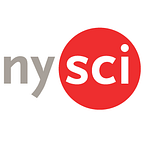STEM Profiles: Mike Nguyen, Mathematician and Football Star
Our latest STEM Profile is of Mike Nguyen — a mathematician by training, someone who loves solving complex analytical problems. (Other STEM profiles can be found here and here.)
Mike is a vice president at Analysis Group, an economic consulting firm, and his office is in Los Angeles.
Mike was born in Vietnam. His parents brought the family to the United States when he was a small child.
A football star at UCLA, he was a wide receiver and caught a touchdown pass in the 1994 Rose Bowl.
What do sports and statistics have to do with each other? We asked Mike to talk about what he does and how he got there.
Mike Nguyen, Mathematician
You deal with a lot of numbers. Were you interested in that as a child?
When I was 10 years old, a big part of my life was sports. I was passionate about football, and I played basketball and baseball as well, but the biggest priority for me as a child was doing well in school. My parents always taught me to challenge myself inside and outside of the classroom, and I always enjoyed the analytical aspects of my math and economics classes.
What’s your work like?
My firm consults for law firms, corporations and government entities, typically in litigation matters. Many times the work we do deals with the assessment of damages, ranging from analyzing markets and economic and financial data to developing alternative scenarios to estimate how things would have looked if certain actions or events hadn’t taken place. Ultimately, the work we do involves working with academics and industry professionals, and often ends up as testimony in court.
For example, we advised an investment management firm that had lost a lot of its client’s money by investing in Enron stock, and was being sued for more than $1 billion. We analyzed more than 10 years of stock trades and holding records, and ultimately concluded that their investment practices were consistent with industry norms. This was a pretty big case. At the time it was one of the top 10 litigation defense wins of the year.
What got you ready for the work you do now?
I received my undergraduate degree from UCLA, majoring in mathematics and economics, with a minor in business administration. The quantitative courses I took, such as economics and statistics, were important to understand how to analyze data and understand how markets work. I later returned to UCLA to obtain my MBA in finance and accounting, where I was able to learn more about business valuation, securities, and investment management, which help me do my job every day.
How did you end up at UCLA?
Sports and academics were always important to me. I was raised in Oregon but I chose to attend UCLA because it had the perfect balance between academics and athletics and because it felt like the right fit. I received a full scholarship to play as a starting wide receiver on the football team, where I had a very successful football career that included scoring a touchdown in the ’94 Rose Bowl. I am also proud to have been the first Vietnamese-born non-kicker to play Division I college football.
Did you have a mentor?
Yes. Don Morrison, my academic advisor and a professor of statistics at UCLA, introduced me to economic consulting, and motivated me to pursue it. He was a mentor to a lot of UCLA athletes. He knew that not many of us would turn pro, and even if we did, we would want something to do after our playing days were over. Ever since I was young, I always did my best work while on a team. Professor Morrison taught me that through economic consulting, I could continue to be part of a team by interacting with colleagues and professors every day, so I wasn’t merely crunching numbers on my own.
What would you want to say to students today?
The skills that you learn through STEM courses are going to be extremely valuable to you in your future career. It might be hard to see when you are young, but these skills are in very high demand. If you do well, it will open up a lot of opportunities for you at a lot of different types of companies. It’s going to be challenging, and you have to work hard and spend the time learning those subjects, but the benefits will come.
What gets you to the office in the morning?
We help clients solve complex business problems and every day brings a new challenge that I haven’t seen before. If the issues were easy, then we wouldn’t have been hired to solve them in the first place. My job allows me to learn new things constantly, from the work itself and also from the people I’m working with.
A lot of students say they’re intimidated working with numbers. That seems to be what you find interesting.
Yes. Challenging yourself is how you get better. In sports, if you only play against teams you’re blowing out, you’re never going to improve.
Check out the other STEM Profiles in our series:
· Ayah Bdeir, an entrepreneur who started littleBits, which makes kits for kids so they can invent their own tech devices.
· Keith Appleby, an architect deep into the tech world who also loves art.
